Episodes
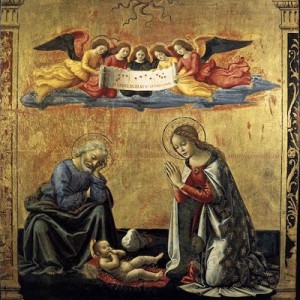
Tuesday Dec 25, 2018
Poetry for the Feast of Christmas with The Wyoming Catholic College Faculty
Tuesday Dec 25, 2018
Tuesday Dec 25, 2018
‘Twas the night before Christmas, when all through the house
not a creature was stirring, not even a mouse.
Those first lines from Clement Clarke Moore’s “A Visit from St. Nicholas” may be the most recognized line of Christmas poetry in America—or perhaps the most recognized line of any kind of poetry in America. Yet Christmas, Christ’s nativity has been the subject of many, many great poems.
As a Christmas gift to you our listeners, this Christmas podcast will focus on great Christmas poems—recited, not discussed by Wyoming Catholic College faculty. Enjoy.
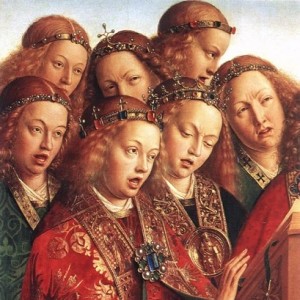
Tuesday Dec 18, 2018
Choirs of Angels, Choirs of College Students with Prof. Christopher Hodkinson
Tuesday Dec 18, 2018
Tuesday Dec 18, 2018
Someone new attending a midweek college mass might wonder why more students don’t attend. Then, as communion is about to begin, the question is answered. Nearly half the congregation on any given weekday is in the choir loft.
Choir, while a big commitment that begins with an audition, remains the most popular extracurricular activity at Wyoming Catholic College.
his year, Prof. Christopher Hodkinson has joined the college faculty as Instructor of Music and Fine Arts and Director of Music. Prof. Hodkinson who grew up in Nottingham, England is a graduate of Cambridge University and for the last five years was Director of the Schola Gregoriana of Cambridge. Prof. Hodkinson is our guest this week on The After Dinner Scholar.
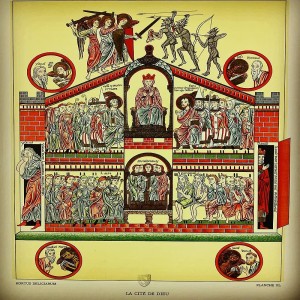
Tuesday Dec 11, 2018
St. Augustine, the City of God, and the City of Man with Dr. Virginia Arbery
Tuesday Dec 11, 2018
Tuesday Dec 11, 2018
In AD 380, not long before the sack of Rome in 410, the Emperor Theodocius had declared Christianity the official religion of the Empire. Perhaps, many argued, that was the problem. Many worshiped Jesus abandoning the old gods of Rome—Jupiter, Juno, Minerva, Apollo, Aphrodite, and the rest. No doubt those gods sent the barbarians to destroy the city as punishment for the lack of piety.
In Roman North Africa, there was a town called Hippo. And the bishop of Hippo, Augustine, got wind of those arguments, picked up his pen, and began writing what has become one of the world’s greatest apologetic and greatest political treatises: The City of God.
Wyoming Catholic College students study The City of God as sophomores and then again as seniors. At least once and sometimes twice, their professor is political philosopher, Dr. Virginia Arbery. Dr. Arbery is our guest this week on The After Dinner Scholar.
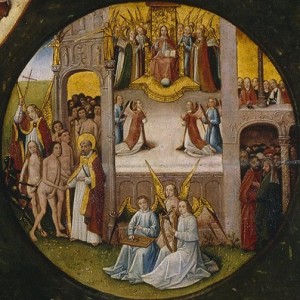
Tuesday Dec 04, 2018
Heaven, Hell, and Purgatory in Thomas Aquinas with Dr. Kent Lasnoski
Tuesday Dec 04, 2018
Tuesday Dec 04, 2018
Each Sunday at Mass we repeat the same words: “ I look forward to the resurrection of the dead and the life of the world to come.” We also remind ourselves that Jesus is coming again, most of us would rather not think too deeply about death and with it about Hell, Purgatory, and Heaven. But how often do we take the time to consider what exactly that means?
St. Thomas Aquinas wrote his Compendium Theologiea during the last two years of his life, completing it in 1273. Unlike his Summa Theologiae, theology for theologians, Thomas wrote the Compendium to help laypeople to love God more by coming to know Him better. That is, it’s theology for everyone seeking to know, love, and serve God through faith in Jesus Christ.
During the waning days of this fall semester, Wyoming Catholic College juniors under Dr. Kent Lasnoski’s tutelage have been considering what St. Thomas had to say about judgment, Hell, Purgatory, and Heaven in the Compendium.
Dr. Lasnoski is our guest this week on The After Dinner Scholar.
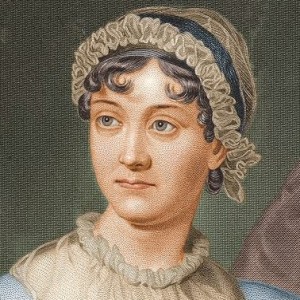
Tuesday Nov 27, 2018
Virtue, Happy Endings, and the Novels of Jane Austen with Dr. Tiffany Shubert
Tuesday Nov 27, 2018
Tuesday Nov 27, 2018
Happy endings have been standard fare in literature for millennia. Odysseus' trials finally bring him home to Ithika. Dante journeys through Hell to get there, but eventually he sees the Beatific Vision.
Later in literary history, Emma Woodhouse in Jane Austen's Emma and Elizabeth Bennett in her Pride and Prejudice suffer a variety of travails, failures, and setbacks, but in the end, they both fall in love, marry well, and their happiness is complete.
Unrealistic? Silly? Little more than one of those cheap romance novels for sale in airports? Or do happy endings in Jane Austen tell us something crucial about human nature, human desire, and the human condition?
Dr. Tiffany Shubert teaches humanities and the Trivium here at Wyoming Catholic College. Among her academic interests are the happy ending and the novels of Jane Austen. Dr. Shubert is our guest this week on The After Dinner Scholar.
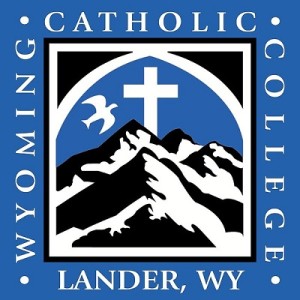
Tuesday Nov 20, 2018
Accreditation!: The End of a Long Journey with Dr. Glenn Arbery
Tuesday Nov 20, 2018
Tuesday Nov 20, 2018
Last week, Wyoming Catholic College President Glenn Arbery received the long awaited and prayed for phone call from the Higher Learning Commission (HLC). Wyoming Catholic College is now fully accredited—and just in time for Thanksgiving.
That means our college—its mission, its education, its student life, its faculty, its leadership, its business practices, and its financial stability—have met or exceeded the standards set by the Higher Learning Commission. That is, we have passed American higher education’s quality control system.
To tell us some of the history of the process and the benefits to Wyoming Catholic College and our students, we’re joined this week President Glenn Arbery.
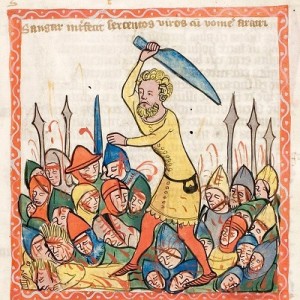
Tuesday Nov 13, 2018
Tuesday Nov 13, 2018
“And all that generation also were gathered to their fathers; and there arose another generation after them, who did not know the Lord or the work which he had done for Israel.” (Judges 2:10)
When Israel entered the Promised Land, Joshua was the clear commander and leader of the people. Then he and his generation died. It was a generation that, as a friend used to say, forgot to make disciples. The memory of the Exodus and of the Lord God faded and, well, disaster was the result.
Enemies came to oppress Israel. In their pain they called out to the Lord who, because he is faithful, heard and answered by sending a judge to deliver them. Then, when the judge died, the cycle began all over again.
Dr. Jeremy Holmes and I have been team teaching freshman theology, a course that surveys the history of Israel in the Old Testament. Our classes that reflected on the judges and the subsequent anointing of a king over Israel got us thinking. Dr. Holmes is our guest on The After Dinner Scholar.
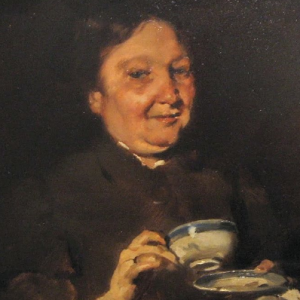
Tuesday Nov 06, 2018
Science in a Cup of Tea with Dr. Scott Olsson
Tuesday Nov 06, 2018
Tuesday Nov 06, 2018
“This cup of tea,” the lady claimed, “was made wrong. You put the tea in first and then the milk rather than putting the milk in before the tea. I could taste the difference immediately.”
Could she really and, if so, how would we know? How do we use experimentation to test her claim that she tastes the difference between a cup where milk was added to tea and one where tea was added to milk? The story is all about the scientific method.
While the answer may seem straightforward enough, it turns out that any scientific experiment is fraught with complications and difficulties. Dr. Scott Olsson’s students have been struggling with some of those complications and difficulties in this the first semester of their junior year. This week on the After Dinner Scholar, Dr. Olsson gives us a glimpse in the questions.
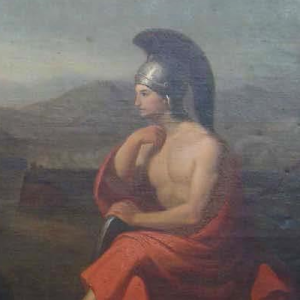
Tuesday Oct 30, 2018
Telemachus and the Birth of Wonder with Dr. Jason Baxter
Tuesday Oct 30, 2018
Tuesday Oct 30, 2018
"Tell me, Muse, of the man of many ways, who was driven / far journeys, after he sacked Troy's sacred citadel."
Those lines open Homer's epic poem The Odyssey. The story, they tell us, is about Odysseus, a great hero of the Trojan War. It's about his journeys and trials. Bracing stuff and we can't wait to get started. But Homer doesn't start. Not yet.
Instead after the exciting preview, the first four books of The Odyssey are not about the heroic Odysseus, but about his son, Telemachus who Dr. Jason Baxter describes as "adolescent, wimpy, insecure." That is, he's the polar opposite of his famous dad.
Yet it was to Telemachus that Dr. Baxter pointed to encourage our students here at Wyoming Catholic College. Dr. Baxter is our guest this week.
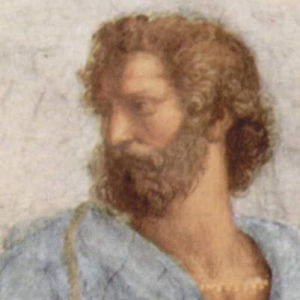
Tuesday Oct 23, 2018
Happiness and the Good in Aristotle's Nichomachean Ethics with Dr. Michael Bolin
Tuesday Oct 23, 2018
Tuesday Oct 23, 2018
“What is the highest of all practical goods?” asked Aristotle at the beginning of The Nichomachean Ethics. “Well,” he went on, “so far as the name goes, there is pretty general agreement. ‘It is happiness’.” Aristotle then continued, “But when it comes to saying in what happiness consists, opinions differ.” As the Ray Conniff singers sang back in 1966, “Happiness is different things to different people.” And within our culture even the most irreligious people would answer, Amen.
But is happiness simply different things to different people? Or are their common threads? Can we explore happiness and human nature to learn what happiness is apart from everyone’s subjective opinion?
For Aristotle—and with him the Western tradition until just recently—the answer is, Yes. We can discover what happiness is, a quest he took up in The Nichomachean Ethics.
Dr. Michael Bolin has been teaching Aristotle’s Ethics to Wyoming Catholic College juniors this semester. Dr. Bolin is our guest this week on The After Dinner Scholar.

